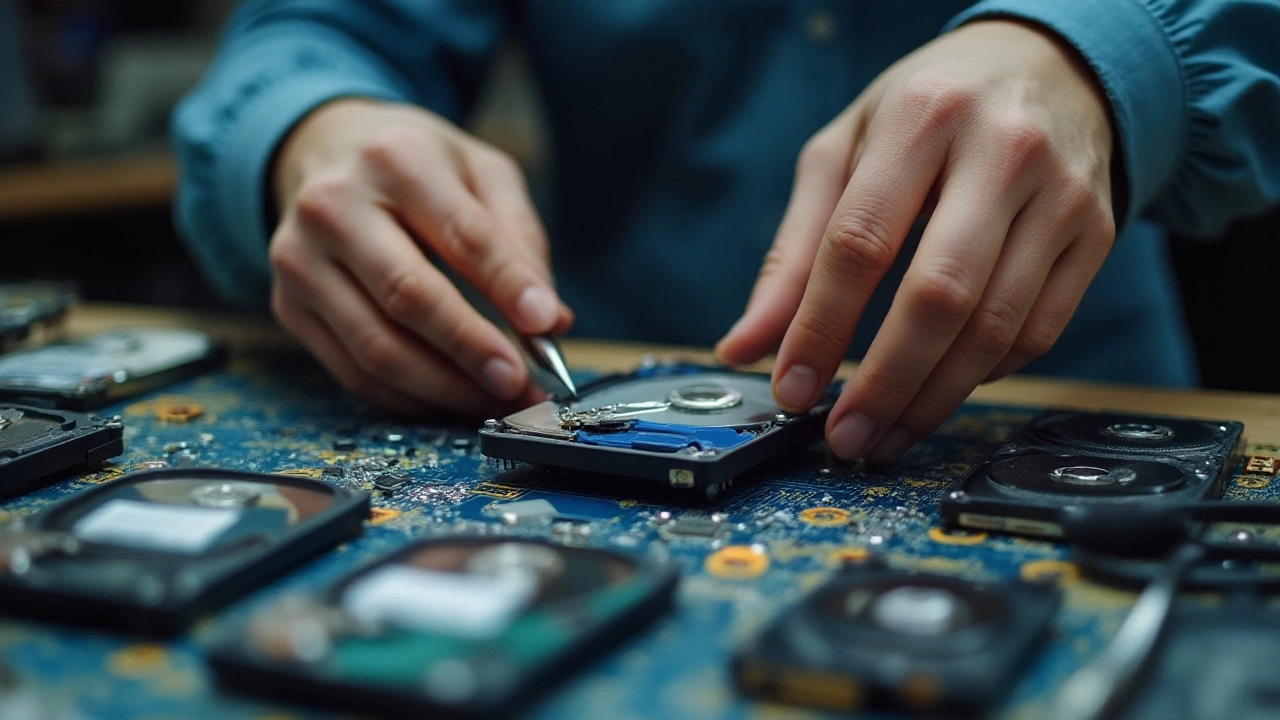Computer Hardware Basics and Practical Tips
If you’ve ever wondered why some PCs feel slow while others zip through tasks, the answer usually lies in the hardware. Knowing the core components—especially storage—helps you make smarter upgrades without blowing your budget.
Understanding Drive Speed
Hard drives (HDDs) store data on spinning magnetic platters. Speed is measured in revolutions per minute (RPM) and data transfer rates. An 7200 RPM drive moves data faster than a 5400 RPM model, but both are still slower than solid‑state drives (SSDs) that use flash memory instead of moving parts.
SSDs shine because they offer near‑instant access times and higher read/write speeds. A typical SATA SSD reaches 500 MB/s, while a modern NVMe SSD can exceed 3000 MB/s. If your computer boots in 30 seconds with an HDD, swapping to an SSD can cut that down to under 10 seconds.
When comparing speeds, look at the specifications: sequential read/write values show how fast large files move, while random I/O numbers matter for everyday tasks like opening apps. Higher numbers mean smoother performance, especially for creative work or gaming.
Choosing the Right Storage Upgrade
First, decide what you need most. If you just want a quicker start‑up and snappier apps, a 250‑GB or 500‑GB SSD for your operating system and programs is enough. Keep a larger HDD for bulk storage like movies, backups, or less‑used files.
Second, check compatibility. Most laptops and desktops have a 2.5‑inch bay for SATA SSDs. If your machine supports an M.2 slot, you can install an NVMe SSD for the best speeds, but make sure the slot supports PCIe 3.0 or newer.
Third, consider your budget. SATA SSDs cost around $0.10‑$0.15 per GB, while NVMe models are slightly pricier but still affordable for common capacities (500 GB to 1 TB). For a noticeable lift in everyday performance, the price difference is worth it.
Finally, don’t forget data safety. Before swapping drives, back up your important files to an external drive or cloud service. After the upgrade, clone your old drive to the new SSD or perform a fresh install of your OS for a clean start.
Beyond storage, other hardware pieces also affect speed. A good amount of RAM (8 GB minimum, 16 GB preferred) prevents bottlenecks when multiple apps run together. A decent CPU ensures the system can handle tasks without lag. Upgrading one component while ignoring the others can limit gains.
In short, the biggest performance jump comes from moving from an HDD to an SSD, especially an NVMe model if your PC supports it. Pair that with enough RAM and a capable processor, and you’ll notice a smoother, faster computer that feels fresh even after years of use.
Ready to boost your PC? Start by checking what drive you have now, then pick an SSD that fits your budget and system. Follow the simple steps above, and you’ll enjoy a faster, more responsive machine without the guesswork.
- January 16 2025
- 0 Comments
- Rowan Cavendish
Understanding the Main Types of Hard Drives and Their Uses
This article explores the four primary types of hard drives that are commonly used in computers and other electronic devices. It provides insights into each type's unique characteristics, including storage capacity, speed, and durability. Readers will also discover how to choose the right hard drive based on their needs, whether for personal use or intensive computing tasks. By understanding these options, you'll be better equipped to enhance your device's performance.
- Driving Lessons (43)
- Driving Test Tips (34)
- HGV Training (32)
- Driving Test Booking (28)
- Driving Licence Renewal (26)
- Driving Theory Test (22)
- Intensive Driving Course (20)
- Pass Plus Course (15)
- Driving Tips (15)
- Driver Licensing (14)
Categories
- February 2026 (7)
- January 2026 (13)
- December 2025 (15)
- November 2025 (13)
- October 2025 (21)
- September 2025 (5)
- August 2025 (8)
- July 2025 (30)
- June 2025 (30)
- May 2025 (30)
- April 2025 (31)
- March 2025 (30)
Archives
- driving lessons
- driving test
- driving tips
- intensive driving course
- driving test tips
- HGV training
- driving theory test
- learn to drive
- driver training
- pass driving test
- driving test booking
- HGV driving
- road safety
- Virginia driving test
- driving license renewal
- Virginia driver's license
- learner drivers
- safe driving
- driving license
- learning to drive

